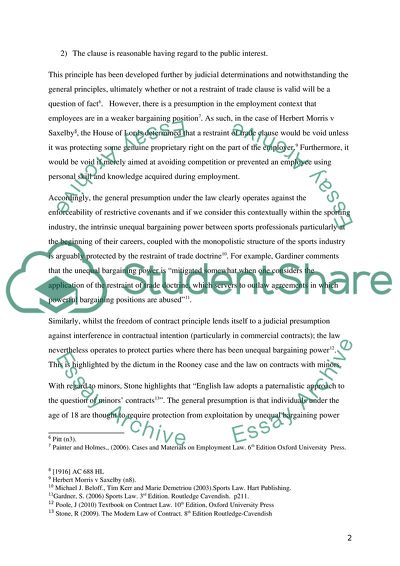Cite this document
(Proactive Sports Management v Wayne Rooney Case Study, n.d.)
Proactive Sports Management v Wayne Rooney Case Study. https://studentshare.org/law/1745662-proactive-sports-management-v-wayne-rooney-and-others-of-15-july-2010-i-am-assuming-this
Proactive Sports Management v Wayne Rooney Case Study. https://studentshare.org/law/1745662-proactive-sports-management-v-wayne-rooney-and-others-of-15-july-2010-i-am-assuming-this
(Proactive Sports Management V Wayne Rooney Case Study)
Proactive Sports Management V Wayne Rooney Case Study. https://studentshare.org/law/1745662-proactive-sports-management-v-wayne-rooney-and-others-of-15-july-2010-i-am-assuming-this.
Proactive Sports Management V Wayne Rooney Case Study. https://studentshare.org/law/1745662-proactive-sports-management-v-wayne-rooney-and-others-of-15-july-2010-i-am-assuming-this.
“Proactive Sports Management V Wayne Rooney Case Study”. https://studentshare.org/law/1745662-proactive-sports-management-v-wayne-rooney-and-others-of-15-july-2010-i-am-assuming-this.


